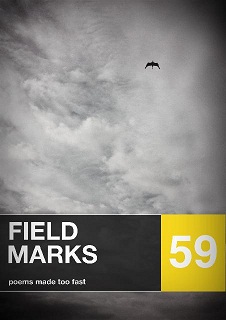It might be easier at the sea,
on a point, Atlantic or Pacific,
that commands a view
in halcyon or storm-surge,
the wave on wave compulsion
that takes everything unmoored out
bringing some things back in,
much lost between tides,
always something to find,
though little of worth
outside human sentiment,
to do as Jeffers suggests:
to unhumanize our views
and see more clearly
our own worth, or lack of it.
Here, mid-continent bound,
sitting on this slight rise,
two familiar trees
of relative height and girth—twins,
of different parentage
but shared ecology—friends
to me, though they require work,
it is near to impossible
that I separate my struggles,
my joy, from their fullness, their wounds,
their calm, their longstanding-ness.
In this sultry June moment,
their leaves hang limp,
barely shaking in the faintest of breezes,
as a late robin still finds his worm
and the bluejay yips to chide
some smaller singer’s warning.
I wonder where the rabbits have gone,
so much clover to graze,
some many soft topped dandelions.
What have I done to deserve
such peace in the middle of such torment?
It would certainly be easier at the sea,
to forget the boundaries
my own time has bought for me,
the accident of my birth, here—
landlocked and prairie-girt,
at the dull end of a rapturous century,
only to inherit a new millennium
seemingly determined to kill us all
before our three-score and ten.
Then, perhaps not. I can almost
smell the salt-air from here,
feel the current pulling at my feet.
The sea would not be good for forgetting.
Time must beat its shores, pebble-soft.
We must be content to grow old while we can.
There will be plenty of time for forgetting.
The rabbits will return; I am sure of it.
